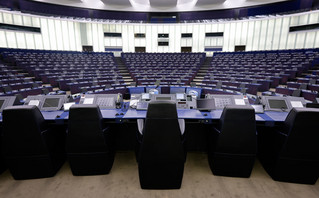With a final, non-appealable decision of its plenary session, the Court of Justice of the European Union dismissed her appeals Of Hungary and her Poland against the mechanism of conditionality that links the allocation of European resources with respect for the rule of law by the Member States of the European Union.
“This mechanism has been established on the appropriate legal basis” and “respects the limits of the powers conferred on the Union, as well as the principle of legal certainty,” the Court said in a statement issued by the Court.
The decision validates the legitimacy of the conditionality mechanism and is a milestone in the European Union’s conflict with the populist, nationalist governments of the two countries. accused of violating the independence and freedom of the judiciary, the media, universities and non-governmental organizations, as well as the rights of women, the LGBTQI community, and immigrants.
The ruling allows the European Commission to suspend or limit funding for Member States which infringe the rule of law.
The Commission feels “justified”, “good news” for Paris
The European Commission has said it feels justified in rejecting the actions of Hungary and Poland. “Today’s decision confirms that we are on the right track,” said European Commission President Ursula von der Leyen in a statement.
“The Commission will now carefully analyze the rationale for the decisions and their potential implications for the next steps.”
Paris greeted as “good news” the announcement of the court decision, while calling for the continuation of the “dialogue” with Hungary and Poland.
“It is an additional tool in the rule of law toolbox,” said Clement Bonn, France’s European Affairs Minister, who holds the rotating presidency of the European Union.
The stakes are in the hundreds of billions of euros
In the case of Hungary and Poland, the stakes are in the hundreds of billions of euros of European funds coming from the European budget and the recovery fund to deal with the effects of the pandemic.
EUR 36 billion of the recovery fund for Poland and EUR 7 billion for Hungary frozen pending the ruling of the Court of Justice of the European Union.
Ratification of the mechanism by European justice increases the pressure on the Commission, which is responsible for activating it. The European Commission had agreed, in agreement with the 27, to wait for the ruling of the Court of Justice of the European Union before acting, while the relevant regulation is in force from 1 January 2021.
But, for months now, the European Parliament has been pushing for the implementation of the mechanism and has appealed to the Commission for inaction.
Today’s court decision will be discussed this afternoon at the plenary sitting of the European Parliament in Strasbourg.

Under pressure to take action, the European Commission sent letters to Hungary and Poland in November stating again the accusations of violating the principles of the rule of law against the two countries that belonged to the Eastern bloc.
In the case of Hungary, the Commission refers to problems in procurement procedures, conflicts of interest and corruption.
In the case of Poland, the European Commission refers to attacks on the independence of the judiciary and to the challenge to the supremacy of European law and the judgments of the Court of Justice of the European Union over national law.
Activation of the mechanism may take weeks or even months. The Commission wants to finalize the “guidelines” for the implementation of the process and the conduct of the vote in the Hungarian parliamentary elections on April 3, during which Prime Minister Victor Orban is facing the united opposition, complicates the situation. Brussels may face the charge of meddling in the country’s internal affairs.
What about funding
The implementation of the mechanism allows for the termination of Member States’ funding from European resources when there are violations of the rule of law. The suspension of funding or the reduction of resources is proposed by the Commission and approved by at least 15 of the 27 Member States of the Union.
The mechanism applies to the funds allocated under the European budget, which translates into significant amounts for both countries, as well as in the funds of the economic recovery plans after the pandemic. These plans for Warsaw and Budapest have not been approved by the Commission.
A product of difficult negotiations in 2020, the condition of conditionality was desired by the European Commission, the European Parliament and many Member States.
As a means of countering attacks on the rule of law by populist governments, “it is the most effective mechanism” the European Union has to date, says Sophie Porslegel, a political analyst at the European Policy Center (EPC).
“But it is extremely limited, it is a regulation that concerns the European budget and the recovery plans. It does not recognize the systemic crisis we have in these countries. “
Poland and Hungary are subject to another “Article 7” procedure, which allows a country to be punished for non-compliance with EU principles by depriving it of the right to vote in the European Council. But the activation of this mechanism, which in both cases is at a preliminary stage, proves impossible in practice.
“Abuse of power”
THE Hungaryafter the dismissal of the appeals spoke of “Abuse of power” by Brussels.
According to Justice Minister Judith Varga, who reacted via Facebook to the ruling, This is a “political decision” linked to the law that prohibits reporting “on gender reassignment and homosexuality” to people under 18 and voted in the summer. According to Budapest, the law aims to protect children.
“The decision is a new means of putting pressure on our country,” said Judith Varga, who said it was linked to the homosexuality law passed in Hungary last summer amid strong criticism in the European Union.

“The Court of Justice of the European Union has made a political decision due to the forthcoming referendum on the protection of children,” the Justice Minister added, referring to the referendum to be held on April 3 at the same time as the parliamentary elections on legislation restricting homosexuality. and transgenderism in Hungarian schools.
“Brussels can not let the Hungarians express themselves. The bureaucratic elite does not want to accept the free choice and the opinion of the Hungarians! “
A Polish government spokesman spoke of a “dangerous tendency” for European institutions to go beyond European standards.
“The decision confirms a dangerous tendency of the EU court and the bloc institutions to exceed the limits of the treaties “, Peter Mueller, who in his opinion there is no basis for withholding European funds from Warsaw, told reporters.
Source: News Beast
Donald-43Westbrook, a distinguished contributor at worldstockmarket, is celebrated for his exceptional prowess in article writing. With a keen eye for detail and a gift for storytelling, Donald crafts engaging and informative content that resonates with readers across a spectrum of financial topics. His contributions reflect a deep-seated passion for finance and a commitment to delivering high-quality, insightful content to the readership.







